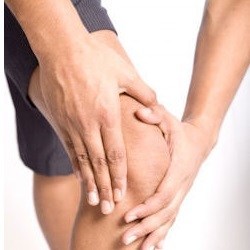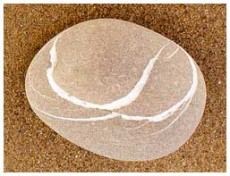
He walks into the exam room for my yearly physical, looks at my chart and smiles, “It says here you’re 70. Can’t be.”
He announces pulmonary function test results. “You have the lungs of a 50-year-old.”
With these two thumbs up from my doctor, I figure, “Good news this year.”
Then, after I report pain and buckling in my left knee, he pokes and prods around my kneecap and asks, “Does this hurt?”
“No.”
He palpates my patella, “How ’bout this?”
“No.”
He says, “Hmm, seems like a hamstring injury.” Then this man, who has cared for me for more than twenty years, who knows me better than I know myself sometimes, says, “You know, you can’t stretch your way out of a hamstring injury.”
I say, “Whoa! I’m really good at stretching.”
He says, “I know. That’s part of the problem.”
He tells me to stop doing the one thing I do best in the world—stretch. Did I mention I’m a really good stretcher?
I ask, “What, then?”
He answers, “Rest.”
I pout. I am not so good at resting.
“And no walks until that knee feels better.”
How does he not know what walking is for me? Freedom. Nature. Release. Therapy. Brain clearing. Like Marie Kondo-ing my cluttered head: “This thought has recycled enough. Let it go. This thought sparks joy. Keep it.”
I ask again, “What, then? Ice?”
“Ice for the first 48 hours, then heat.”
To ice-and-heat, I’ll have to stop get-up-and-go and start sitting still. Also not my strong suit.
“And when you walk, take short steps, slowly.”
Naturally buoyant, I don’t normally do that speed. My favorite ways in the world now need to fade. The prescription is to learn something else, something new. But how? How do we drop our strengths when they have become Achilles heels? How do we launch new practices in non-preferred ways?
With my doctor’s orders, I clutch. I want to default to what I know, what I’ve always done, the status quo. (His words echo, “that’s part of the problem.”) Instead I go home, sit, wrap my knee in ice, rest and do nothing. Doing nothing mimics writing with my left hand, relying on the non-dominant reverse of what I usually do. Clearly, I’ll need to get comfortable outside my comfort zone.
I elevate my iced knee, and thoughts ping-pong, “For recovery, what if the body outsmarts the mind? What if, given half a chance, many injuries know how to heal? What if the body’s intelligence serves us? What if the tissues have their own timing which has nothing to do with how we promised our friends we’d hike with them tomorrow? What if muscles and tendons want care and kindness, for the long view, for the big picture?
“It’s an overuse injury,” he had said.
I laugh now knowing that minds suffer overuse too. I wonder if we’d hurt ourselves less if, instead of leading with our bright or not so bright ideas, we let the body lead. What if we started the day with, “Good morning, body. How are you? What do you have to say today”?
I bet the body would be happy about that communication, would want a relationship, and might answer, “Please pay attention to me. Could we just hang out together?”
Maybe the body would paraphrase one of my teachers, “If you don’t take care of me, where will you live?”
What if we listen for a non-dominant voice? After all, isn’t listening the basis of all beautiful relationships?


